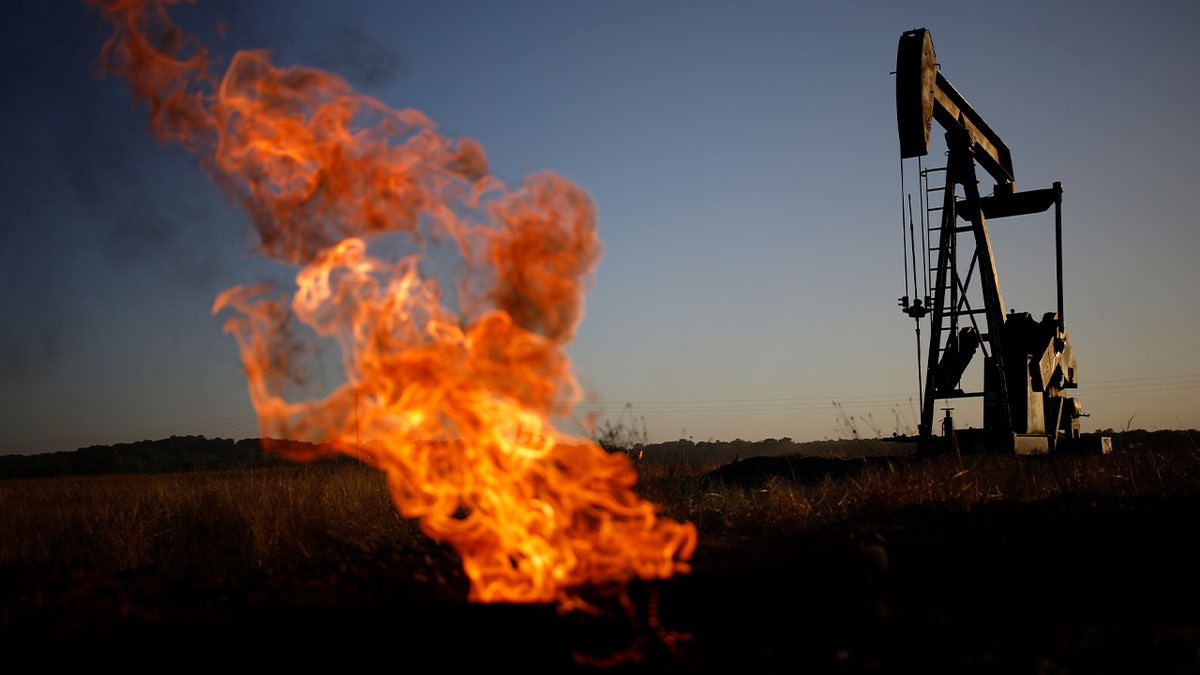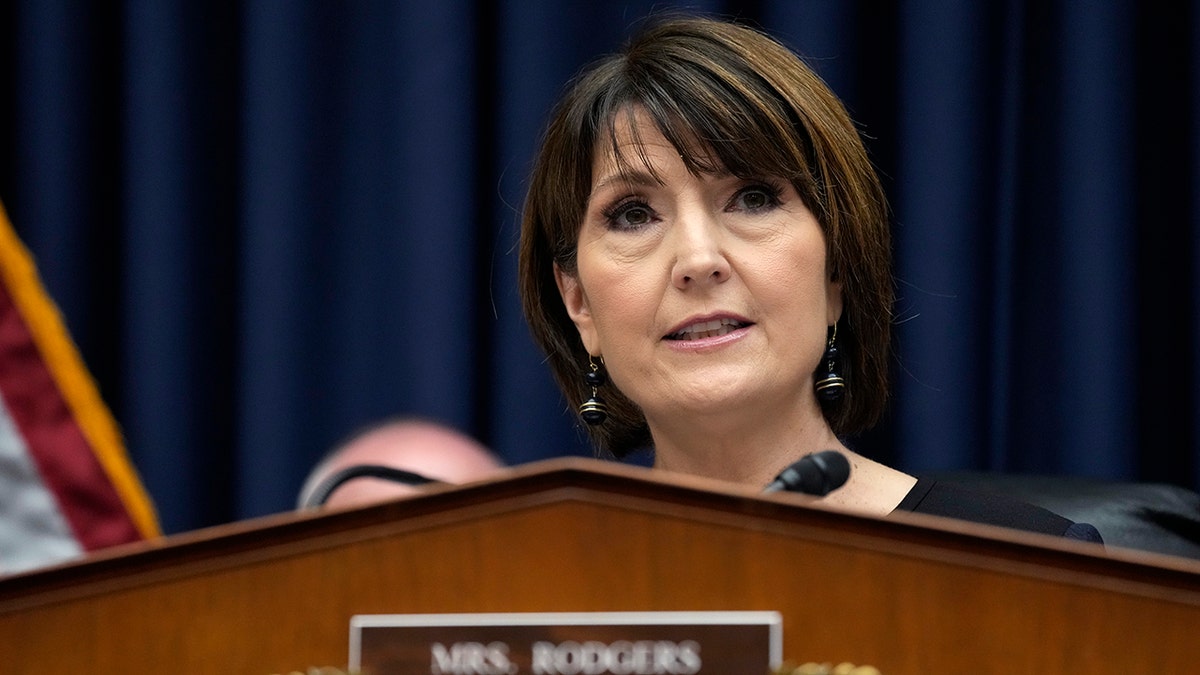
The Biden administration finalized environmental regulations targeting methane and other air pollutants generated by the U.S. oil and gas industry across hundreds of thousands of existing sources nationwide.
Environmental Protection Agency (EPA) Administrator Michael Regan — alongside White House climate czar Ali Zaidi, Democratic New Mexico Gov. Michelle Lujan Grisham and climate advocates — announced the rulemaking during a press conference at the COP28 United Nations climate summit in Dubai on Saturday morning. The Biden administration said the action was among the “most critical” it could take to “slow the rate of climate change.”
“On day one, President Biden restored America’s critical role as the global leader in confronting climate change, and today we’ve backed up that commitment with strong action, significantly slashing methane emissions and other air pollutants that endanger communities,” Regan said in a statement, adding that the rule will “reduce climate pollution, protecting people and the planet.”
“Under President Biden and Vice President Harris’s leadership, the U.S is turbocharging the speed and scale of climate action, at home and abroad, including our collective efforts to tackle super-pollutants like methane,” added Zaidi. “Over just the last year, the Administration has taken over 100 actions to implement the U.S. Methane Emissions Reduction Action Plan — steps that cut pollution, promote public health, create thousands of jobs, and lower energy costs for Americans.”
JOE MANCHIN GOES SCORCHED-EARTH ON BIDEN ADMIN OVER EV ACTIONS BOOSTING CHINA

President Biden talks to Environmental Protection Agency Administrator Michael Regan during a White House event on environmental justice earlier this year. (Drew Angerer/Getty Images)
Grisham, whose state drilled the second-highest amount of crude oil in the U.S. last year, boasted that the regulations closely mirror rules New Mexico put forth, saying they will reduce emissions and spur innovation across the country.
Overall, under the regulations, an estimated 58 million tons of methane emissions would be prevented between 2024 and 2038, according to the EPA. That is the equivalent of 1.5 billion metric tons of carbon dioxide and roughly the same amount emitted by the power sector in 2021.
For years, environmentalists and Democrats have called for stricter regulations targeting methane, which activists refer to as a “super pollutant” and which is far more potent than carbon dioxide.
The regulations include rigorous new standards that force the energy industry to slash methane emissions, mainly by incorporating advanced technology like pollution-control equipment and aerial screening, sensor networks and satellites. It further phases in a requirement to eliminate routine flaring of natural gas, the release of gas produced during oil drilling operations that lack capture technology.
The finalized regulations introduce a so-called Super Emitter Program, which will use third parties to detect large methane releases.

A natural gas flare burns near an oil pump jack at the New Harmony Oil Field in Grayville, Illinois, on June 19, 2022. (Luke Sharrett/Bloomberg via Getty Images)
“As the world gathers to tackle the climate crisis, the U.S. now has the most protective methane pollution limits on the books,” Fred Krupp, the president of the left-wing Environmental Defense Fund, said in a statement. “EPA’s limits on oil and gas methane pollution are a vital win for the climate and public health, dramatically reducing warming pollution and providing vital clean air protections to millions of Americans.”
“With other countries also zeroing in on methane as a key climate risk, it’s a signal to operators worldwide that clean-up time is here,” Krupp continued. “EPA has shown tremendous leadership in establishing these leading clean air standards, and we look forward to working with states and EPA to move quickly on implementation. The communities who fought long and hard for these protections now need to begin to reap their benefits.”
In a statement Saturday morning, the American Petroleum Institute, the largest U.S. oil and gas lobby group, said it was reviewing the rules, but also that it was committed to reducing methane emissions.
“We share the administration’s goal of reducing methane emissions and smart federal regulation can help build on industry’s progress to date,” said API senior vice president of policy, economics and regulatory affairs Dustin Meyer. “To be truly effective, this rule must balance emissions reductions with the need to continue meeting rising energy demand. We are reviewing the complex rule to ensure it meets that dual objective.”
US GRID OPERATORS WARN BIDEN’S POWER PLANT CRACKDOWN COULD TRIGGER ‘SIGNIFICANT POWER SHORTAGES’
EPA’s rules come as other nations are expected to issue similar pledges to reduce methane emissions during COP28 which kicked off on Thursday. They come also as world leaders and U.S. lawmakers have called for aggressive actions.
International Energy Agency executive director Fatih Birol said in November that curbing methane emissions “is one of the best – and most affordable – opportunities to limit global warming in the near term.” Additionally, in a letter to Regan on Thursday, Democratic Sens. Sheldon Whitehouse and Tom Carper, and House Energy and Commerce Committee Ranking Member Frank Pallone called for the EPA to finalize the rules.

House Energy and Commerce Committee Chair Cathy McMorris Rodgers, R-Wash., said the methane regulations would lead to higher prices for Americans. (AP Photo/Alex Brandon)
EPA first proposed the regulations last year during COP27, the 2022 UN climate summit in Egypt. That proposal strengthened a 2021 proposal.
However, Republican lawmakers and Democratic Sen. Joe Manchin, D-W.Va., have joined calls in opposition to the methane rules, saying they will force lower oil and gas production while increasing costs for U.S. consumers.
“Within the next year, the EPA is planning to finalize multiple connected regulatory actions that will increase costs and reduce the production of American energy. Energy prices are projected to rise for American families because of new methane regulations, expanded emissions monitoring and reporting requirements, and a new tax on methane,” House Energy and Commerce Committee Chair Cathy McMorris Rodgers, R-Wash., and Environment Subcommittee Chair Bill Johnson, R-Ohio, wrote to Regan on November 7.
“The EPA’s expanded regulatory burden creates substantial legal and regulatory uncertainty, and the Congressional Budget Office determined that a tax on methane emissions will increase operational costs, reduce energy production, and increase the price of natural gas,” they added.
CLICK HERE TO GET THE FOX NEWS APP
Manchin wrote separately to Regan in October, saying that the rule showed the Biden administration was determined to “target our flourishing oil and gas sector” and would put “energy and national security at risk.”








